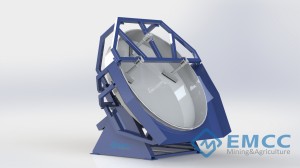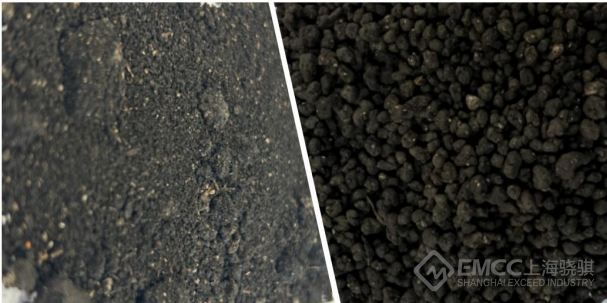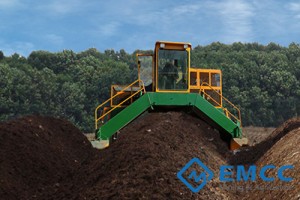Composting fertilizer
China leading manufacturer of organic composting machine, EMCC design high-quanlity compost turner of pig/horse/cow/chicken manure/waste for organic fertilizer plants with low price and cost.
COMPOSTING FERTILIZER
Composting is a process of converting organic waste into fertilizer. It involves collecting and piling organic waste, such as food scraps, plant clippings, and animal manure, and utilizing the decomposition action of microorganisms to transform it into compost.
THE PROCESS OF COMPOSTING INCLUDES THE FOLLOWING STEPS:
Waste collection: Gather organic waste – chicken manure/pig manure/cow dung/cattle manure/animal waste/poultry manure , including food scraps, plant clippings, and animal manure. It is important to note that the organic waste should be natural substances free from toxic or chemical pollutants.
Piling: Pile the organic waste. During piling, it is essential to control the moisture, ventilation, and temperature to provide favorable environmental conditions for microbial decomposition.
Turning: Regularly turn the compost pile to promote aeration and mixing, providing better decomposition conditions. This helps accelerate the breakdown of organic matter.
Decomposition: During the piling and turning process, microorganisms such as bacteria and fungi break down the organic waste. They consume the organic matter and convert it into nutrient-rich substances that can be absorbed by plants.
Maturation: After a period of decomposition, the organic waste gradually transforms into stable organic matter. When the compost appears dark brown, soil-like, and has no noticeable odor, it is considered mature.
China EMCC have three types of Compost Turner for our clients: Wheel Type Compost Turner, Hydraulic Compost Turner and Groove Type Compost Turner.
THE BENEFITS OF COMPOSTING INCLUDE:
Resource recycling: Composting allows for the effective utilization of organic waste, reducing the burden on landfills while recovering organic matter and nutrients.
Soil improvement: Compost can enhance soil structure, increase water retention and aeration, and improve soil fertility and crop growth.
Nutrient supply: Compost contains abundant organic matter and nutrients, providing plants with the necessary nutrition to promote healthy growth.
Environmental friendliness: By reducing organic waste landfilling and incineration, composting helps minimize greenhouse gas emissions and environmental pollution.
It is important to note that the composting process requires time and management. Proper waste-to-pile ratios, moisture control, appropriate turning frequency, and the correct application of compost can all impact the quality and effectiveness of compost.
RESOURCES

Best Practices for Maintaining a Disc Granulator
The disc granulator, also known as a pan granulator, is a

EMCC R&D LAB: CHICKEN LITTER TO ORGANIC FERTILIZER GRANULE
After batch agglomeration testing were conducted on small samples of






